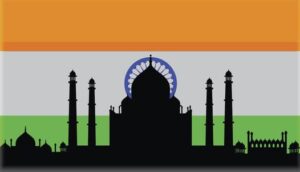“This is largely in relation to the WhatsApp messaging app owned by Facebook, through which information deemed to be a public threat can be promulgated.”

Facebook wants India’s Supreme Court to decide whether it can be compelled to share users’ Aadhaar information with law enforcement authorities.
The company is facing similar lawsuits in four different jurisdictions – one in the Madhya High Court, one in Bombay, and two in Madras – and is petitioning to have them all transferred to India’s highest court. Essentially, the suits revolve around what Facebook can do with its users’ Aadhaar information, which pertains to India’s pioneering biometric national ID database. One of the parties to the proceedings, the Attorney General of the Tamil Nadu government, is seeking to get Facebook to share Aadhaar information pertaining to investigations of “fake news, defamatory articles, pornographic materials, anti-national and terror contents in the online media,” as he is quoted in India Today.
This is largely in relation to the WhatsApp messaging app owned by Facebook, through which information deemed to be a public threat can be promulgated. Facebook says that due to WhatsApp’s end-to-end encryption, it isn’t actually able to access users’ Aadhaar information, but at least one academic authority from the Indian Institutes of Technology disagrees.
The question for now, though, is whether the Supreme Court should actually agree to hear Facebook’s cases. Explaining its rationale, Facebook is quoted as arguing that transferring the cases “would serve the interests of justice by avoiding the possibility of conflicting decisions from the four common causes,” adding that “avoiding conflicting decisions is particularly necessary here to ensure that users are afforded equal privacy protection across India, and to prevent the infeasible situation where the Petitioner, which operates a uniform platform across India is ordered to link Aadhaar information for users only in certain Indian states but not others.”
Sources: India Today, The Indian Express, The Economic Times
–
August 22, 2019 – by Alex Perala





Follow Us